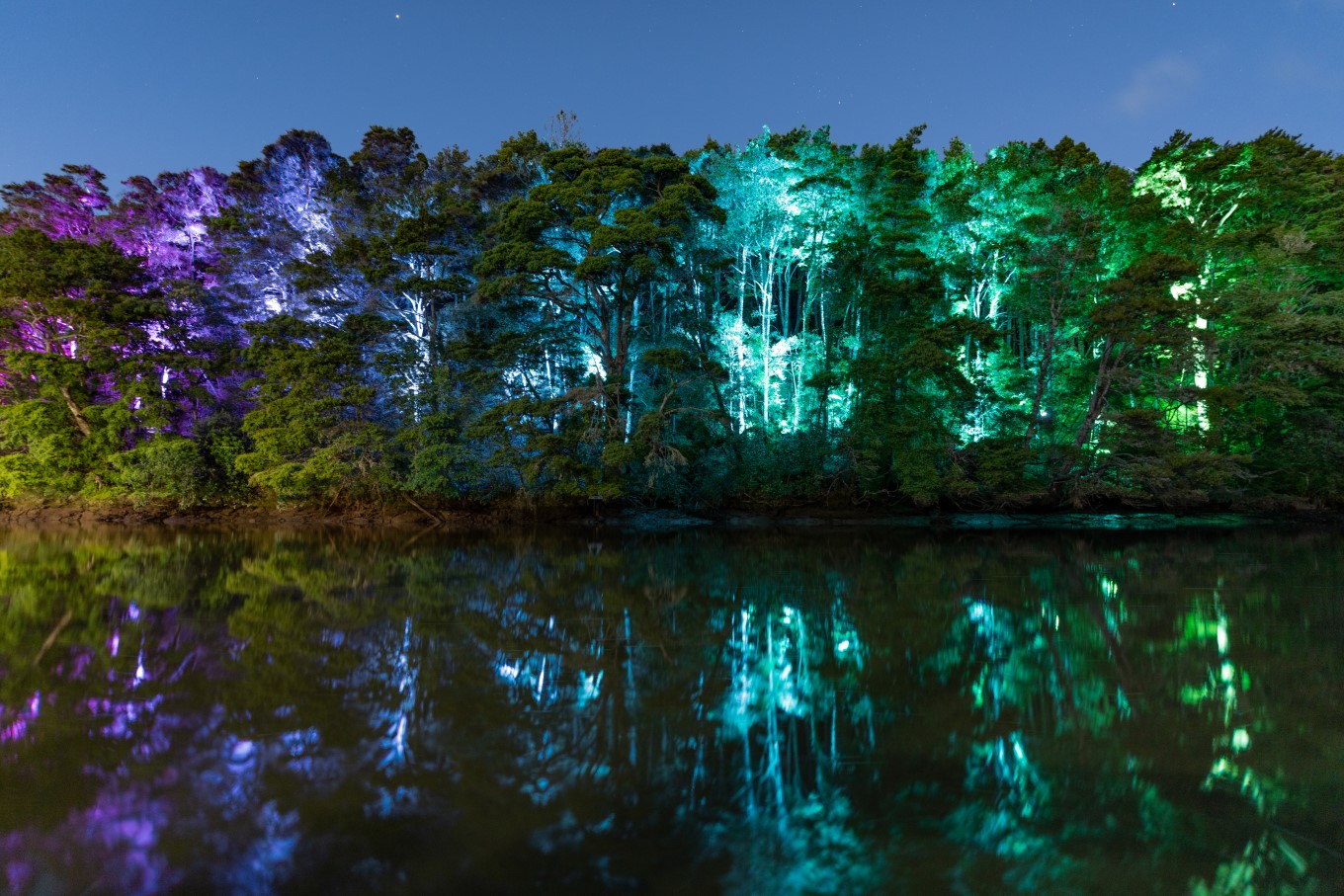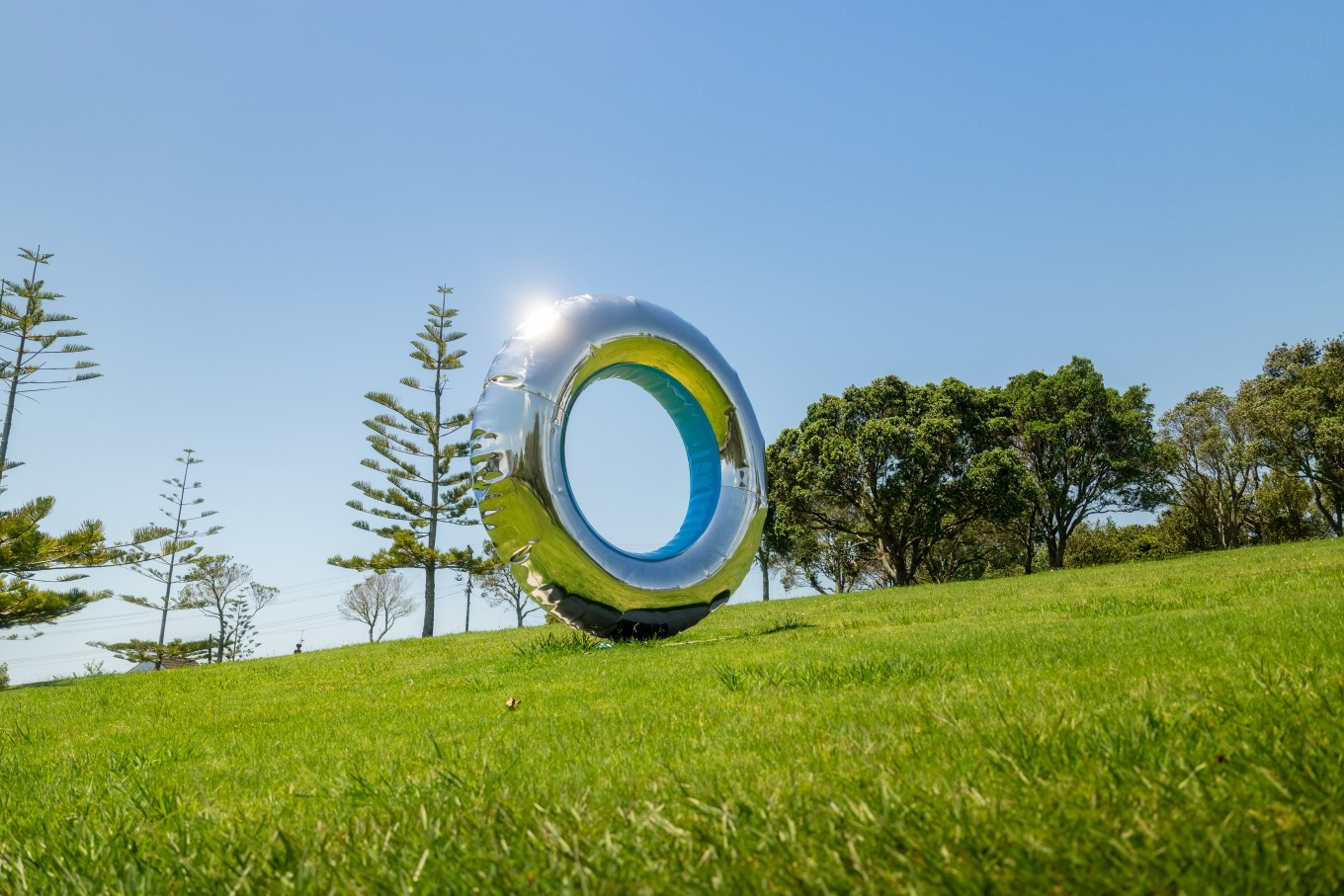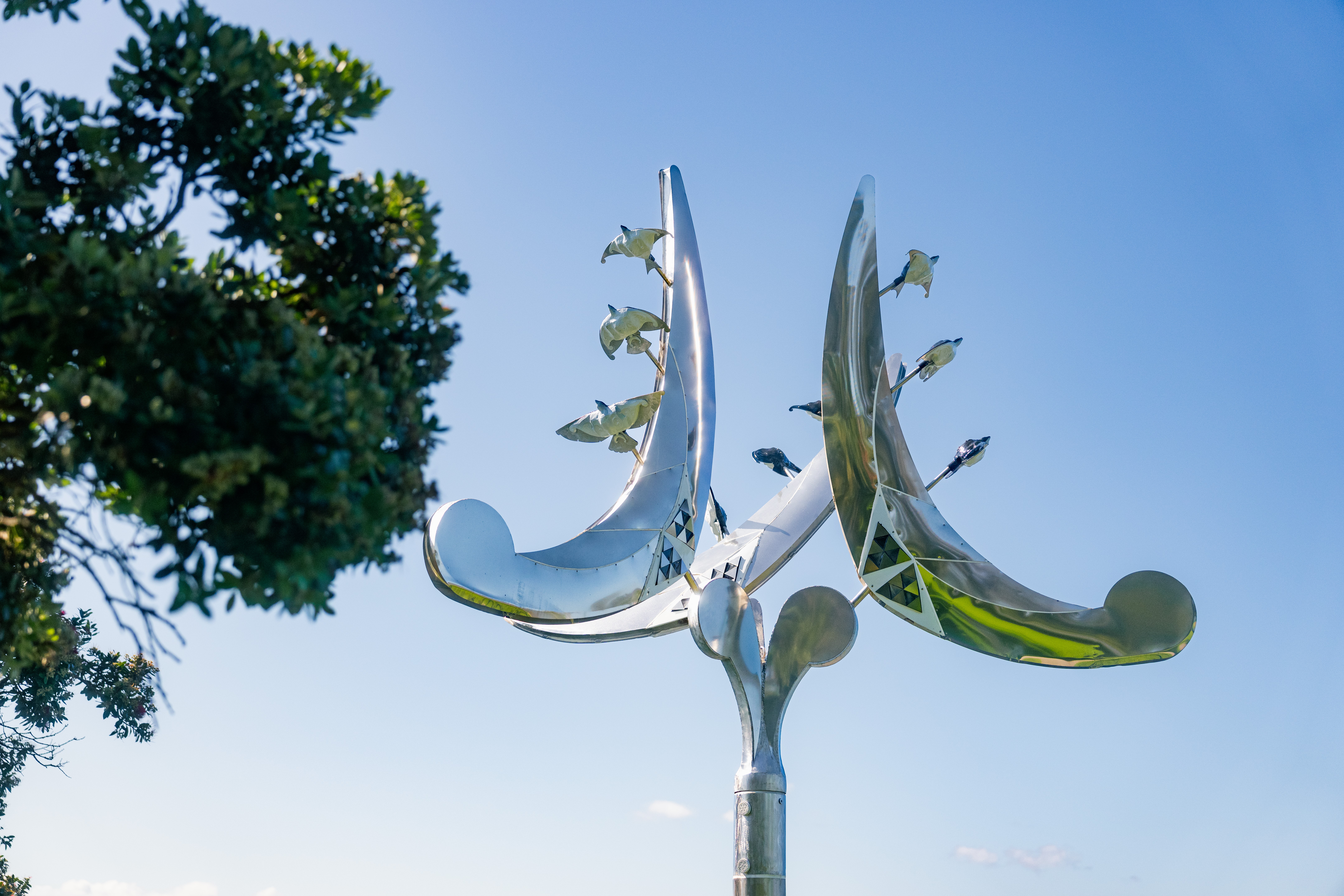Let’s hear it for public art! It tells stories about our history and connection to the land and ignites our sense of wonder. Make sure you put these four public artworks on your bucket list to visit.
Te Hokinga Mahara - A Collection of Memories, Warkworth
Every evening when the sun goes down at Warkworth Wharf, the native trees along the Mahurangi River are illuminated with a spectrum of colour. The 160m-long light and sound installation by toi whenua artist Hokimai-anahera Rosieur (Ngāti Manuhiri, Ngāpuhi and Te Aupōuri) tells a story of how the natural world was born, including the birth of Aotearoa.
This work also features a sound component – the noise of the au (current) expresses the mauri (life force) of Mahurangi River, while haka and whakataukī (proverbs) speak of the tangata whenua who have belonged here for centuries.
The work, which has 36 LED lighting units and eight speakers along the treeline, was created in partnership with the Ngāti Manuhiri Settlement Trust with invaluable guidance and support from the Mahurangi Winter Festival of Lights.

Beacon, Milford
If you feel like a good dose of empowerment, head to Milford Reserve on a warm summer evening to bask in the purple glow of this stainless steel work by Lang Ea. This feminist work celebrates and reflects upon the achievements of the women’s suffrage movement in New Zealand while also lighting the way for women today.
The camellia shape at the centre of this polished stainless steel work represents the camellias worn by the suffragists like Kate Sheppard, who said, “We are tired of having a 'sphere' doled out to us, and of being told that anything outside that sphere is ‘unwomanly’. We want to be natural just for a change… we must be ourselves at all risks.” The violet hue symbolises the colour they wore as a sign of dignity and respect.
You can bathe in the violet glow of the work every night from dusk until 10pm when the work lights up.
Soft Focus … Summer’s Day, Oruamo Domain, Glenfield
This playful work looks like a giant inflatable pool ring rolling down the slopes of the grassy reserve it inhabits. At 3.5m in diameter, its larger-than-life size ignites our sense of wonder and invites interaction whether you’re checking your reflection in its stainless steel surface or a kid climbing inside its powder-blue interior surface.
Artist David McCracken created it as part of a series of works intended to peak our curiosity and sense of optimism, particularly after the Covid-19 pandemic.
“I really wanted to do something that was optimistic and forward-looking and felt light,” he says. “I am looking for immediacy and to ‘break the fourth wall’ with the vertical orientation and placement at the bottom of the hill. This suggests dynamism… that something is happening.”

Ngā Manu, Pakuranga
Manu means bird, and this new kinetic sculpture by Dion Hitchens soars and whirls in the breeze alongside the Tāmaki Estuary.
The work is a visual interpretation of the whakataukī (proverb), “E koekoe te tūī, e ketekete te kāka, e kūkū te kererū” (The tūī squawks, the kākā chatters, the kererū coos), as published in Aroha by Dr Hinemoa Elder. In this case, Dion says, it refers to the idea that it takes all kinds of people to create a community.
“The bird call can be seen as the bird’s identity – different languages for each bird – yet they all work together with the forest to help create a better environment and community,” explains Dion. “This proverb is also about acceptance and non-judgement. How can we be more like the birds and accept diversity as normal, working together to create a better community and environment?"
The work is located at Sanctuary Point in Bramley Drive Reserve along the picturesque 9km Pakuranga Rotary Walkway, which runs from Prince Regent Drive, Farm Cove, to Panmure Bridge.
Discover Auckland’s public art at He Kohinga Toi / Auckland Public Art


